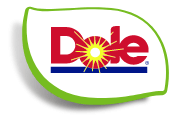Our beginings
Dole began in 1851 when Samuel Castle and Amos Cooke, originally from Boston, set up their trading company Castle & Cooke in Hawaii. The other half of Dole's heritage, the Hawaiian Pineapple Company, was founded in 1901 by James Dole ‘aka Pineapple King’.
View timeline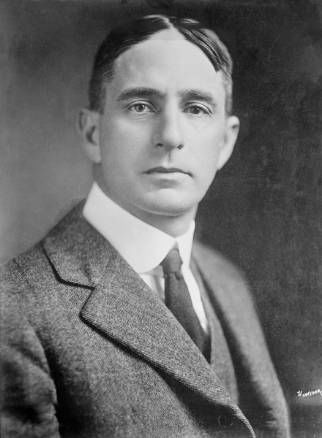
The Company
Dole produces and markets a worldwide line of fresh, packaged and frozen foods. The Company does business in more than 70 countries and employs, on average, 20,000 full-time, regular employees and 7,000 full-time seasonal or temporary employees, worldwide
Founded in Hawaii in 1851, Dole Asia Holdings Pte. Ltd., headquartered in Singapore, is the global operating headquarters of the Dole Group of companies owned by ITOCHU Corporation. Dole is one of the world's largest producers and marketers of high-quality fresh fruit with revenues of approximately $2.5 billion. Dole produces and markets a worldwide line of packaged and frozen foods. The Company does business in more than 70 countries and employs, on average, 20,000 full-time, regular employees and 7,000 full-time seasonal or temporary employees, worldwide.
With approximately 130 bases in 65 countries, ITOCHU Corporation, one of the leading sogo shosha, is engaging in domestic trading, import/export, and overseas trading of various products such as textile, machinery, metals, minerals, energy, chemicals, food, information and communications technology, realty, general products, insurance, logistics services, construction, and finance, as well as business investment in Japan and overseas.
The Dole Worldwide Packaged Foods Division (“Dole Packaged Foods”) of Dole Asia Holdings Pte. Ltd. markets a full line of canned, jarred, cup, frozen dried fruit and snack products, and is an innovator in new forms of packaging and processing fruit.
Dole Packaged Foods operates pineapple plantations of approximately 38,000 acres in the Philippines and owns and operates over 2 million square feet of processing facilities. Two multi-fruit canneries, a blast freezer, cold storage, a juice concentrate plant, a box forming plant, a can and drum manufacturing plant, warehouses, wharf and a fresh fruit packing plant, are located at or near the Philippines pineapple plantation.
In Thailand, Dole Packaged Foods operates three tropical fruit manufacturing sites and purchases fruit from hundreds of Thai farmers. In addition, Dole Packaged Foods operates three processing plants in the United States for its frozen fruit products and farms over 1,000 acres of peaches in California.
The Dole Asia Fresh Division (“Dole Asia Fresh”) of Dole Asia Holdings Pte. Ltd. is a leader in growing, distributing, and marketing fresh fruits and vegetables throughout the Asian market. It primarily sources products from the Philippines, Japan, China and Sri Lanka, among others. Dole Asia Fresh produces bananas, pineapples and papayas on over 30,000 acres of land in the Philippines and also sources these produces through associated producers or independent growing arrangements. It markets its fresh perishable products in many countries throughout Asia and the Middle East. Dole Asia Fresh operates, directly and in partnership with others, banana ripening and cold storage distribution centers in Japan, Korea, Hong Kong, South Korea, Taiwan, The People’s Republic of China, Malaysia, the Philippines, and New Zealand.
About Itochu Corporation
The foundation of ITOCHU Corporation traces back to 1858, when its founder Chubei Itoh set out from Toyosato Village, in Shiga Prefecture, to Nagasaki as a traveling linen merchant.
With approximately 130 bases in 65 countries, ITOCHU Corporation, one of the leading sogo shosha, is engaging in domestic trading, import/export, and overseas trading of various products such as textile, machinery, metals, minerals, energy, chemicals, food, information and communications technology, realty, general products, insurance, logistics services, construction, and finance, as well as business investment in Japan and overseas.
History timeline
-
1851
-
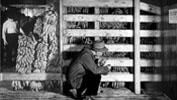
The foundations of Dole Food Company, Inc. are laid as Samuel Castle and Amos Cooke, originally from Boston, set up their trading company in Hawaii.
-
-
1863
-
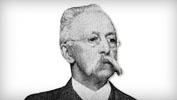
Philipp Astheimer & Sohn is established in Hamburg, Germany. This company is now the basis for Dole's European business.
-
-
1899
-
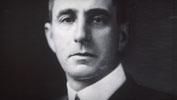
James Drummond Dole comes to Hawaii, fresh out of Harvard's School of Horticulture & Agriculture.
-
-
1901
-
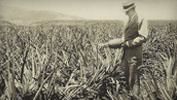
James Dole begins growing pineapples in Wahiawa on the island of Oahu. He establishes the Hawaiian Pineapple Company. Hawaii becomes synonymous with pineapples.
-
Dole makes his famous quality pledge: “We have built this company on quality, and quality, and quality”.
-
-
1907
-
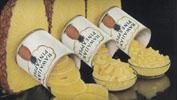
Dole moves his pineapple cannery to Honolulu and places advertisements in U.S. magazines to promote pineapple – one of the first nationwide consumer advertising campaigns in America.
-
-
1911
-
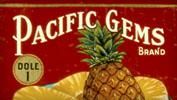
A Dole engineer, Henry Ginaca, invents a machine that peels, cores and cuts pineapple at the speed of up to 100 pineapples per minute. The Ginaca is now an industry standard.
-
-
1915
-

The Hawaiian Pineapple Company becomes Hawaii’s second largest industry.
-
-
1932
-
Castle & Cooke acquires ownership of 21% of the Hawaiian Pineapple Company.
-
-
1933
-

Recognizing the popularity and quality associated with James Dole's name, the company first stamps "DOLE" on cans of pineapple and pineapple juice.
-
-
1961
-
Dole merges with Castle and Cooke and keeps the DOLE brand.
-
-
1963
-
Dole Philippines, the pineapple-growing operation in the Philippines, is organised under the name Dolefil.
-
-
1964
-
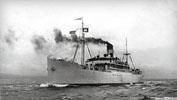
Castle & Cooke purchases a 55% interest in the Standard Fruit & Steamship Company, New Orleans, entering the banana business. It later acquires 100%.
-
-
1972
-
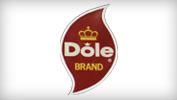
Standard Fruit bananas adopt the DOLE® label, replacing the existing Cabana® label.
-
-
1973
-
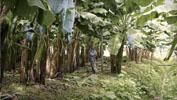
Castle & Cooke develops two large banana plantations on the coasts of Costa Rica and Nicaragua. Castle & Cooke banana operations become the leader in the North American market.
-
-
1975
-
Philipp Astheimer & Sohn is acquired by Castle & Cooke.
-
-
1978
-
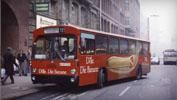
Dole bananas are launched in Europe.
-
Castle & Cooke purchases Bud Antle, Inc., a vegetable company, and begins marketing vegetables from Dole.
-
-
1982
-
The Dole product range in Europe is extended to include citrus and deciduous fruits.
-
-
1986
-
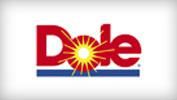
The Dole logo is redesigned. The bright yellow sunburst is chosen, signifying freshness, quality, wholesomeness and good-tasting products.
-
-
1988
-
Philipp Astheimer & Sohn marks its 125th anniversary. The company is renamed Dole Fresh Fruit Europe OHG.
-
-
1990
-
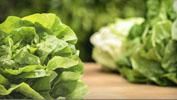
Dole Fresh Vegetables division introduces a line of value-added packaged fresh vegetable products, which include pre-cut vegetables and salads. This soon becomes the fastest growing segment in supermarkets – the refrigerated, pre-cut vegetable and salad section – offering nutrition, good taste and convenience to consumers.
-
-
1991
-

Dole launches the "Dole 5 A Day Programme" to encourage young children and their families to eat five or more daily servings of fruits and vegetables.
-
-
1993
-
Dole arrives in New Zealand with its delicious Tropical Gold ® Pineapples
-
-
1995
-
Dole's global reach extends to more than 90 countries with a product line of over 170 fresh and packaged food products.
-
-
1998
-
In July of 1998, Dole's banana operations in Costa Rica become the first banana exporter and the first agricultural producer in the world to become certified to the environmental management system requirements of ISO 14001. Dole's other divisions in Latin American and Asia follow in 1999.
-
-
1999
-
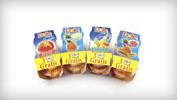
Dole introduces Fruit Bowls®, the first all-natural fruit snack in a plastic cup. In mainland Europe they are known as Fruit Snacks.
Bobby ® bananas are sold in New Zealand for the first time
-
-
2000
-
Papaya (pawpaw) is sold in New Zealand for the first time
-
-
2001
-
Dole introduces organic bananas.
-
-
2002
-
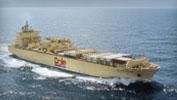
Dole's two newest container ships – the DOLE CHILE and the DOLE COLOMBIA – are named the "Winner for Innovation in Shipbuilding Containership" at the Lloyds List Awards.
-
-
2003
-

Dole is taken private by Mr. D. H. Murdock.
Foundation of the Dole Nutrition Institute to "Feed the World with Knowledge" through research and education.
-
-
2004
-
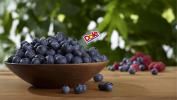
Foundations laid for California WellBeing Institute.
Dole acquires JR Woods (frozen fruits) in the US.
Acquisition of Coastal Berry Company LLC (leading producer of fresh California coastal strawberries and bushberries).
-
-
2005
-
Completion of the acquisition of SABA Trading AB (Sweden).
-
-
2007
-
Dole Food Company, Inc. is named to "World's Most Ethical Companies" list by Ethisphere Magazine.
-
-
2010
-
Dole France, UK, Spain and Portugal are sold to Compagnie Fruitière, in which Dole has a 40% interest.
-
-
2011
-
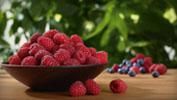
Dole acquires berry grower and marketer Sunny Ridge.
-
-
2012
-
Dole acquires a 100% interest in Mrs. May’s Naturals.
-
-
2013
-

Dole completes sale of Worldwide Packaged Foods and Asia Fresh Businesses to Itochu.
-
-
2017
-
Dole becomes sponsor of Motutatu Restoration Trust
-
